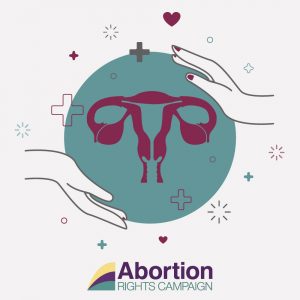
(Part 1 of 2)
As part of 16 Days of Activism Against Gender-Based Violence, we’re taking a closer look at the issues of obstetric and reproductive violence, and how these issues apply to people’s lives in Ireland and across the globe.
Gender-based violence is physical, sexual, psychological or economic harm that is based on gender. The UN consider it a serious violation of human rights, which mostly affects women and girls, but also includes harm directed at trans, non-binary and intersex people. It can take a wide range of forms – but two that are particularly relevant to us here in ARC and in Ireland are reproductive and obstetric violence.
Reproductive violence—also known as reproductive abuse or reproductive coercion—is where someone’s reproductive choices are controlled for them in an attempt to control their life. This includes physical, psychological and financial abuse, encompassing rape, sabotaging birth control, and forcing someone to continue or end a pregnancy against their wishes. Although these forms of abuse are often perpetrated by individuals, the legal and social context can create and facilitate reproductive abuse.
Obstetric violence is abuse, coercion or assault that occurs during labour and childbirth. It encompasses coerced medical interventions, denial of treatment, or dehumanizing procedures. Many practices that have become normal (like birthing lying down, breaking a person’s waters and using drugs to induce labour) are not universally supported and many feminist groups are concerned about the quality of consent in maternity hospitals. Like reproductive violence, acts of obstetric coercion are symptomatic of intersections of patriarchy and a system that is underfunded and that is under pressure to move people through their services as quickly as possible.
Both reproductive and obstetric violence involve the denial of human rights to women and marginalised genders, and these human rights abuses are often compounded where gender intersects with marginalised race, ethnicity, immigration status or economic background.
Prior to the Repeal of the 8th Amendment, the State was the largest perpetrator of both obstetric and reproductive violence in Ireland. Under the 8th Amendment, reproductive and obstetric choices were severely limited, and human rights were frequently abused. Pregnant and labouring people were frequently denied access to vital healthcare, forced to travel to access abortion, and pressured into unnecessary and intrusive medical procedures such as caesaeran deliveries.
Sadly, the removal of the 8th Amendment has not entirely removed the spectre of reproductive and obstetric violence from Ireland. Although there is no longer a constitutional ban on abortion services, or to consent in pregnancy, gender-based violence still continues.
We will look at this in more detail in our next blog, Let’s Talk about: reproductive & obstetric violence (part 2).

